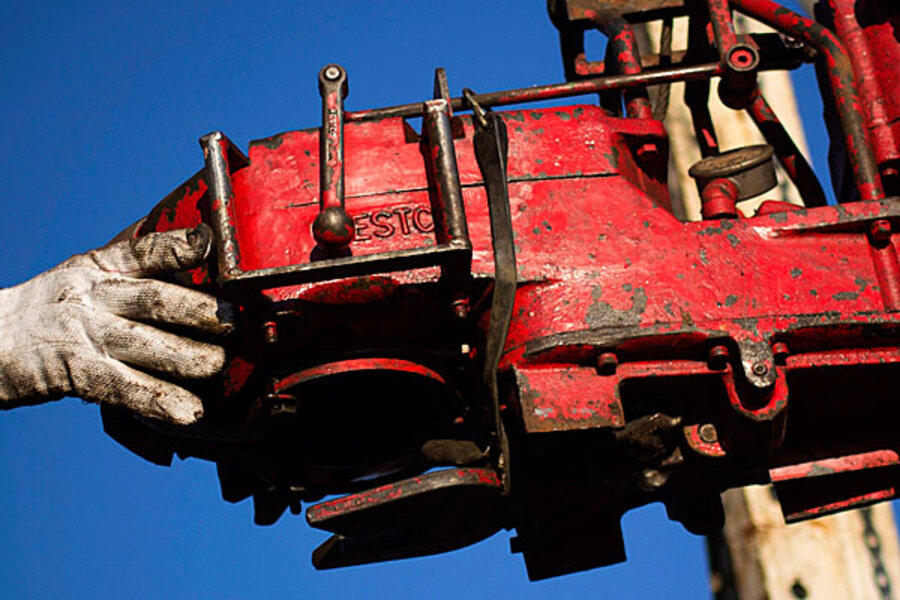North Dakota death rate is highest in nation. Why?
Loading...
| Bismark, N. D.
North Dakota has the highest rate of worker deaths in the nation, due in large part to the oil boom in the western part of the state in recent years, according to a new report from the AFL-CIO.
There were 44 worker deaths in North Dakota in 2011, for a rate of 12.4 deaths per 100,000 workers. That was well above the national rate of 3.5 fatalities per 100,000 workers, the report said.
"The oil boom has come with a hefty price tag of a steep increase in deaths on the job," the labor union said in a statement.
Half of North Dakota's worker fatalities since 2010 have been in oil and gas occupations, according to the federal Occupational Safety and Health Administration. North Dakota last year passed Alaska to become the nation's second-leading oil producer.
Tom Ricker, head of the AFL-CIO chapter in North Dakota, told The Bismarck Tribune that North Dakota's worker death rate is shocking.
"This is not something we want to be No. 1 at," he said.
North Dakota is dominated by the energy, agriculture and heavy manufacturing industries — all of which can be dangerous occupations, Gov. Jack Dalrymple told The Dickinson Press.
"I think it is mostly a function of the industries that your state (has) and the number of people in your state," he said of the state's high worker death rate. North Dakota's population is estimated at just fewer than 700,000.
"If we were Connecticut and we all worked in office buildings all day long, we would have a much better rate," Dalrymple said.
A combination of a need for workers and a drove of inexperienced workers from around the country is part of the reason fatalities have gone up in recent years, said Bill Wuolu, training director for the nonprofit North Dakota Safety Council.
"The rest of the United States is in an economic downturn," he said. "We have an economy here and we have a need for workers, and what we're getting is workers that are doing jobs that they're not trained, skilled or maybe qualified — or some combination of those three — for."
Barbara Allen lost her son, Terry Metcalf, to an oil field accident nine months ago. She said workers in the oil patch need to protect themselves.
"Instead of depending on the company you work for, you're just going to have to take care of yourself," she told the Press. "Not depend on somebody else to take care of it for you."
Dalrymple said he thinks North Dakota companies "compare well with the average company in the United States" when it comes to a commitment to safety.
"I really think those statistics are more a matter of the businesses that are booming in our state," he said.
Copyright 2013 The Associated Press.







